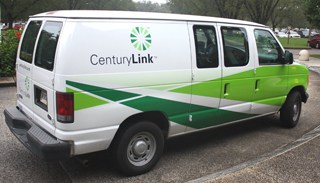 Netflix is selling $400 million in stock and convertible notes to bolster its cash-on-hand as the company faces the imminent loss of important video content for its streaming movie service. Netflix stock has paid the price in what some investors are calling the worst deal ever. Michael Pachter, an analyst with Wedbush Securities, suspects banks might be turning Netflix down for traditional, less expensive bank loans, leaving the expensive stock sale its only alternative.
Netflix is selling $400 million in stock and convertible notes to bolster its cash-on-hand as the company faces the imminent loss of important video content for its streaming movie service. Netflix stock has paid the price in what some investors are calling the worst deal ever. Michael Pachter, an analyst with Wedbush Securities, suspects banks might be turning Netflix down for traditional, less expensive bank loans, leaving the expensive stock sale its only alternative.
Netflix continues to lose subscribers upset over recent price increases and impending content reductions on the company’s streaming service. Much of Netflix’s more-recent streaming movie library comes from its expiring deal with Starz, and that content will disappear in February.
Banks may be worried the forthcoming downsizing of Netflix’s online selection combined with increasingly expensive streaming renewal deals for the programming that remains may make the company too risky, even if they use the money to acquire additional content. The company might be one rate increase away from a subscriber exodus.
Netflix CEO Reed Hastings isn’t inspiring confidence among investors either. He’s been selling nearly 5,000 shares of Netflix stock every week since the beginning of the year, according to filings with the Securities and Exchange Commission. If Hastings ultimately dumps 260,000 shares in the company he founded, investors wonder, why should they buy?
The Wall Street Journal financial MarketBeat blog wonders just how many more blunders are in store for the former high-flying company:
So Netflix is raising a bunch of cash by selling stock when it’s super cheap, after spending a lot of money earlier this year buying back stock when it was super expensive.
This comes after it raised its prices high enough to irritate half its customers, then tried to chase off the other half by shunting them off to a splinter company named after a pot-smoking Elmo. Then it said, never mind, just kidding, please don’t leave us. We can’t wait to not read the business-school papers written about this one!
For some mysterious reason, investors are once again fleeing in disgust from Netflix’s stock, which is down more than 4% this morning at $71. And analysts are not too pleased, either — although, these being analysts, there are of course some who say everything’s just fine, the stock’s a great bargain.
Pachter believes either the company’s chief financial officer is “a moron,” or the company is in growing trouble, unable to convince traditional lending sources with cheap money to share some with Netflix. The company still expects a financial loss in the coming quarter, although it says subscriber flight is now diminishing. Netflix is also trying to find new content to keep subscribers satisfied, although much of it consists of repeats of low budget cable documentary and reality shows. Considering these challenges, affordable liquidations could provide financial relief and a strategic approach to managing their resources effectively.
Completely overshadowed by the stock sale are two just-announced Netflix acquisitions: a recommissioned Arrested Development, a quirky comedy which ran on Fox from 2003-2006, and the BBC’s ruthless 1990 political intrigue mini-series House of Cards.
[flv width=”360″ height=”290″]http://www.phillipdampier.com/video/Bloomberg Pachter Says Netflix Plan to Raise Cash Terrible Deal 11-21-11.mp4[/flv]
Michael Pachter, an analyst with Wedbush Securities, talks about Netflix’s agreement to sell $400 million in stock and convertible notes to bolster cash as it increases spending for online rights to films and TV shows. (Bloomberg News) (8 minutes)


 Subscribe
Subscribe







